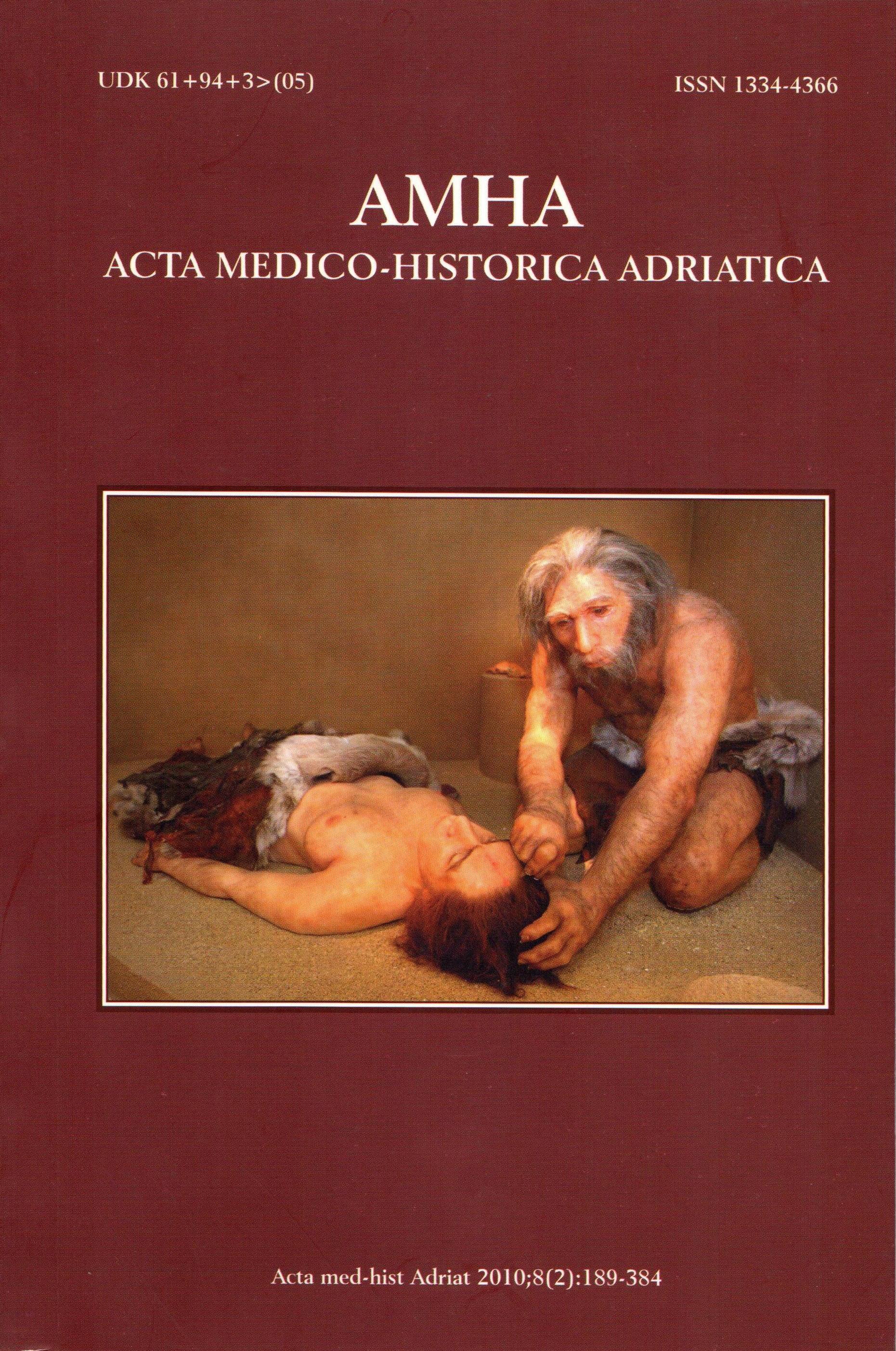ZDRAVNIK MED IDEALOM IN RESNIČNOSTJO: ZDRAVNIŠKO DELO IN LJUDSKI ODNOS DO ZDRAVJA IN MEDICINE V 19. STOLETJU
Keywords:
medicine, health, medical ethics, cholera epidemics, the 19th century, urban and rural areas, Istria and TriesteAbstract
This paper studies the attitude of the society towards the medical profession, which was torn between high social expectations and ideals and medical practice confronted with real-life obstacles. In the 19th century, the physician’s position was still precarious and called for a renegotiation in the community. Physician’s work was faced with people’s distrust and resistance, superstitions and prejudices, folk medicine and religion. Even such ideal qualities as dignity, conscientiousness, and courage, would quickly be called into question by events such as epidemics. Particularly in 19th century rural areas, the physician’s position was far from acknowledged and official medicine had yet to win people’s trust. This paper explores the polyvalent attitude of people towards medicine and health. It investigates the discourse used to describe health and medicine in daily press, professional and popular literature, as well as in official medical documents of the time. It shows a long struggle of public health care to gain people’s approval. During cholera epidemics, which apart from presenting serious threat to human life were an opportunity for medicine to win people’s trust and obedience, the attitude towards health gradually began to change. To some extent this was a result of medical advances, new scientific discoveries, and increasing success in abating the epidemics. At the same time, as the society became more secular, medicine slowly gained people’s trust and gradually replaced the healing methods of folk medicine. Health was less and less understood as a result of God’s will and mercy, and the attitude towards disease began to evolve from passive resignation to an active battle for health.


